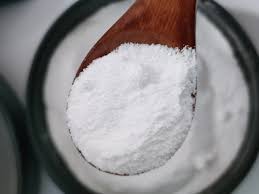November 7, 2024
In a region increasingly focused on environmental sustainability, consumers in the Asia-Pacific (APAC) area are gravitating towards eco-friendly laundry detergents, prioritizing sustainable packaging and chemical-free formulations. According to a recent report from GlobalData, a data and analytics company, this shift underscores a broader aversion to traditional chemical-based detergents, which have been linked to harmful impacts on ecosystems and marine life.
The report highlights a surge in demand for detergent formulations that rely on plant extracts, essential oils, enzymes, and natural preservatives, which are perceived as having minimal environmental impact. “Eco-friendly detergent formulations are gaining popularity as they are considered to have low to no negative environmental effects throughout the entire product life cycle, from production to disposal,” said Naveed Khan, Consumer Analyst at GlobalData.
GlobalData’s 2024 Q3 Consumer Survey, which surveyed 6,131 respondents across Asia and Australasia, revealed that 80 percent of consumers in the region view “sustainable/environmentally friendly” attributes as essential or preferable in their purchases. Additionally, 79 percent noted a similar preference for products with recyclable packaging.
To meet these consumer expectations, manufacturers are adapting their production processes to prioritize sustainable, environmentally friendly options. This shift aims to reduce the environmental footprint of detergents and to attract an eco-conscious customer base in the highly competitive market.
The trend extends beyond just the ingredients within the products to packaging innovations as well. Deepak Nautiyal, Consumer and Retail Commercial Director for APAC and the Middle East at GlobalData, emphasized that concerns over plastic waste, which pollutes land and oceans, have led consumers to seek brands committed to eco-friendly packaging. “Features like zero plastic, 100 percent recyclable, and biodegradable packaging are becoming increasingly popular as manufacturers seek to capitalize on consumer concerns,” Nautiyal said.
While these environmentally-friendly initiatives create promising growth avenues for the laundry detergent industry, they also bring challenges. Sustainable production often requires more significant investments, and balancing these costs with competitive pricing will be crucial. Nautiyal warned that achieving this balance without compromising on profit margins will be challenging but necessary as the market continues to evolve towards sustainability.
The report suggests that with rising awareness and preference for environmentally safe products, eco-conscious formulations and packaging will likely be key factors shaping the future of Asia’s laundry detergent market.











